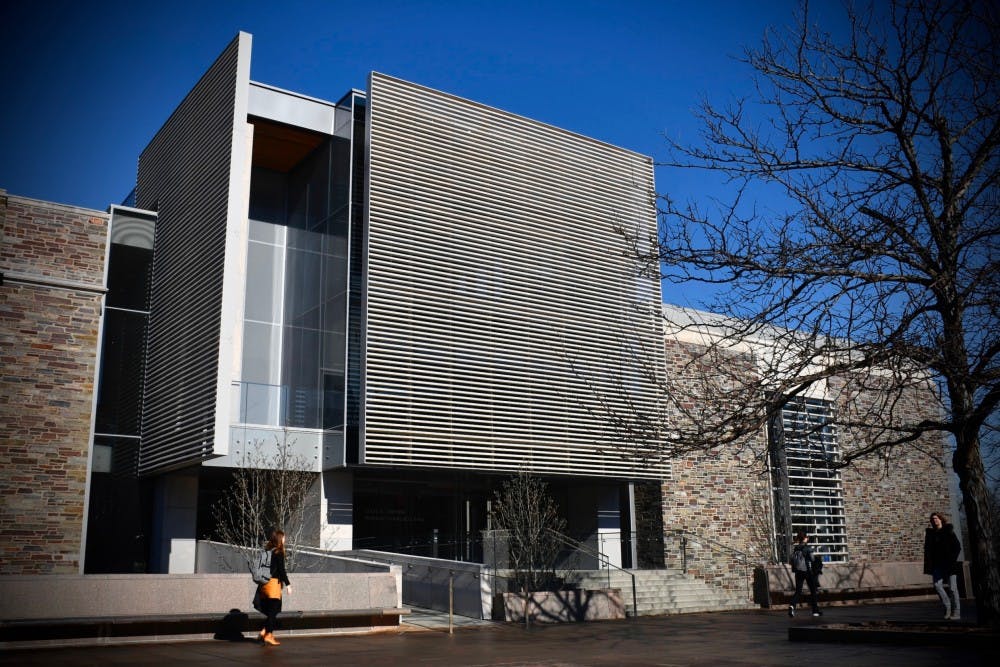Editor's Note: Since the initial publication of this open letter, The Daily Princetonian has been made aware that its author had been hired to start working at Duolingo in 2023. The author bio at the bottom has been updated to include this information.
Additionally, this piece has been updated to correct several factual errors. In fact, the TOEFL iBT Home Edition can be taken at home, and serves students in Russia. While a former trustee of Princeton also served as a chairman of ETS (the company that runs the TOEFL exam), he no longer serves in that position. Finally, TOEFL test takers are in fact able to send scores to four schools for free if they mark those schools prior to examination. The 'Prince' regrets these errors and omissions.
On November 9, this article was further updated to clarify that Princeton accepts the Pearson Test of English (PTE) rather than the Preliminary English Test (PET). Furthermore, the piece has been updated to reflect the fact that the listed prices refer to the TOEFL, not the IELTS or PTE exams, and to clarify that not all are run by "companies."
***
“High-quality education accessible for all.”
That’s one of Princeton’s long-standing guiding principles. We’ve come a long way in giving that motto the justice it deserves: from the new financial aid policy, to offering cost waivers to low-income applicants, Princeton proclaims that it aims to give everyone, everywhere equal opportunity to apply to our institution, regardless of their ethnic, national, or socio-economic background. Yet, to this day, Princeton remains the only Ivy League institution with an English Proficiency Testing requirement that severely hinders accessibility to international students, particularly those of low-income backgrounds from developing countries.
Princeton is the only remaining Ivy League institution that does not accept the Duolingo English Test (DET) as part of its application process for international students. Every other Ivy that requires proof of English proficiency — Yale, the University of Pennsylvania, Columbia, Dartmouth, Brown, and Cornell — all accept the DET. Harvard has even gone one step further and no longer requires an English proficiency test in the first place.
Princeton, on the other hand, forces international students to take either the Test of English as a Foreign Language (TOEFL), International English Language Testing System (IELTS), and Pearson Test of English (PTE) tests, which, in the past, held a monopoly in the English language certification field. The TOEFL, as an example, charges students around $250 to register for the test and $20 to send the test result to every university one decides to apply to, after four free sends prior to examination. Further, the tests are often not available in developing countries and/or rural areas, forcing students to fly abroad to take the test. Applicants from dozens of nations such as Somalia, several islands in the Caribbean and Oceania, and Russia are currently required to leave the country to take the in-person test, though the TOEFL iBT Home Edition is available in Russia. While students from more well-off families can often endure that burden, most prospective students cannot and are ultimately excluded from Princeton’s application process. In light of Princeton’s commitment to accessibility and its aim of allowing anyone, including first-generation, international, and low-income students, to apply to this institution, our current English language certification requirement is both antiquated and discriminatory.

Making things worse, Princeton has previously considered accepting the DET, but refused to do so after one of its committees expressed concern about the test’s efficacy. Several students have since pointed out that the Educational Testing Service, the parent company running the TOEFL, is headquartered in Princeton and a wealthy alumnus and donor who previously sat on Princeton’s Board of Trustees has in the past served as a trustee of ETS. We may have effectively made applying to college a burden for low-income students from developing countries, just to keep a donor happy.
Most of our peer institutions, including all Ivy League colleges that require a proficiency test, as well as Stanford, MIT, and over 3,000 other institutions across the country accept the Duolingo English Test (DET). This provides international applicants anywhere in the world the opportunity to get certified in their English language proficiency for just $49. Furthermore, Duolingo provides practice exams and materials to students free of charge and sends test results almost instantly to universities for free. The test is virtually proctored, safe, and fair. It is researched extensively, and its results were found to be strongly correlated to those of the TOEFL and IELTS exams, but at a much lower cost to applicants. More importantly, it is convenient and affordable, especially for those who are most in need of our support.
Princeton has made the application process more just and accessible in many ways, from the new Financial Aid policy to offering application cost waivers to low-income applicants. Yet, it still requires internationals to take extremely overpriced tests to prove their English proficiency. I believe the organizations running those tests are overpriced and exploitative. Duolingo, on the other hand, created a secure test that is affordable for all and would largely improve Princeton’s application process for internationals.
It is time to accept the Duolingo English Test as part of Princeton’s application process. If we truly want to make Princeton accessible to all, this change is long overdue.

Please consider joining hundreds of Princeton undergraduates in supporting this petition by signing here: tiny.cc/PrincetonApp. As of Oct. 27, the petition had collected 170 signatures.
Alexis Sursock is a senior majoring in Computer Science. He has been hired by Duolingo to start work in 2023. He can be reached at asursock@princeton.edu.








